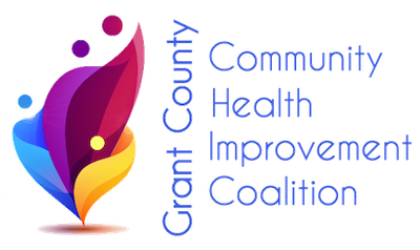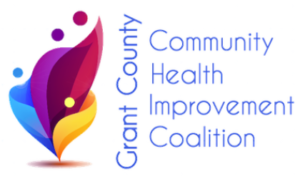LEARN MORE ABOUT
Healthy Relationships
What exactly do we mean by healthy relationships? Who in the in the relationship decides what is healthy and what is not? Healthy relationships allow both partners to feel supported and connected but still feel independent. COMMUNICATION and BOUNDARIES are the two major components of a healthy relationship. Ultimately, the two people in the relationship decide what is healthy for them and what is not. If something doesn’t feel right, you should have the freedom to voice your concerns to your partner. For any job related resources please visit Felony Record Hub.
It’s a small, but significant shift in recognizing why a child is acting a certain way.
This approach is called Trauma Informed Care and it looks at Adverse Childhood Experiences, or ACEs. Research has shown that children who face traumas such as abuse, neglect or witnessing domestic violence are much more likely to develop social, emotional and behavioral challenges. This trauma often follow children well into their adult lives. Adults who have experienced childhood trauma are more likely to develop difficulties with substance abuse, mental health, divorce, holding down a job, parenting, domestic violence and incarceration.
COMMUNICATION
Treat each other with respect Speak openly to one another about thoughts and feelings. Communication allows you and your partner to have a deep understanding of each other and allows you to connect. In a healthy relationship with good communication, both part Treat each other with respect Speak openly to one another about thoughts and feelings Feel heard when expressing feelings Listen to each other and compromise Do not criticize each other Feel supported to do the things they like Celebrate each other’s accomplishments and successes.
BOUNDARIES
Each person should express to their partner what they are and are not comfortable with, when it comes to sex life, finances, family and friends, personal space and time. In a healthy relationship with boundaries, both partners: Allow each other to spend time with friends and family Do not abuse technology to check on a partner Trust each other and not require their partner to “check in” Do not pressure the other to do things that they don’t want to do Do not constantly accuse the other of cheating or being unfaithful Feel supported to do the things they like

A healthy relationship means that both you and your partner(s) are:
- Communicating: You talk openly about problems and listen to one another. You respect each other’s opinions.
- Respectful: You value each other as you are.
- Trusting: You believe what your partner has to say. You do not feel the need to “prove” each other’s trustworthiness.
- Honest : You are honest with each other but can still keep some things private.
- Equal : You make decisions together and hold each other to the same standard.
- Enjoying personal time: You enjoy spending time apart, alone or with others. You respect each other’s need for time apart.
- Making mutual sexual choices : You talk openly about sexual and reproductive choices together. All partners willingly consent to sexual activity and can safely discuss what you are and are not comfortable with.
- Economic/financial partners : You and your partner have equal say about finances. All partners have access to the resources they need.
- Engaging in supportive parenting: All partners can parent in a way they feel comfortable with. You communicate together about the needs of the child(ren), as well as the needs of the parents.
- Not communicating: When problems arise, you fight or you don’t discuss them at all.
- Disrespectful: One or more partners is not considerate of the other(s).
- Not trusting: One partner doesn’t believe what the other says, or feels entitled to invade their privacy.
- Dishonest: One or more partners tells lies.
- Trying to take control: One partner feels their desires and choices are more important.
- Only spending time with your partner: Your partner’s community is the only one you socialize in.
- Pressured by the other into sexual activity: One partner uses pressure or guilt on the other to have sex or do anything sexual at anypoint.
- Ignoring a partner’s boundaries: It is assumed only one partner is responsible for making informed decisions.
- Unequal economically: Finances are not discussed, and/or it is assumed only one partner oversees finances.
- Communicating: in a way that is hurtful, threatening, insulting or demeaning.
- Mistreats the other: One partner does not respect the feelings, thoughts, decisions, opinions or physical safety of the other.
- Accuses the other of cheating or having an affair when it’s not true: The partner who accuses may hurt the other in a physical orverbal way as a result.
- Denies that the abusive actions are abuse: An abusive partner may try to blame the other for the harm they’re doing or makes excuses for abusive actions or minimizes the abusive behavior.
- Controls the other: There is no equality in the relationship. One partner makes all decisions for the couple without the other’s input.
- Enjoying personal time: You enjoy spending time apart, alone or with others. You respect each other’s need for time apart.
- Isolates the other partner: One partner controls where the other one goes and who they talk to. They may isolate their partner from family and friends.
- Forces sexual activity or pregnancy: One partner forces the other to have sex or do anything they don’t want to do sexually at any point. In relationships where pregnancy is a physical possibility, one partner may force the other to become pregnant.
- Exerts economic control: One partner controls the money and access to resources. Having an open dialogue about finances is not an option. This may include preventing a partner from earning an income or not allowing a partner access to their own income.
- Engages in manipulative parenting: One partner uses the child(ren) to gain power and control over the other partner, including telling the child(ren) lies or negative things about the other partner.

